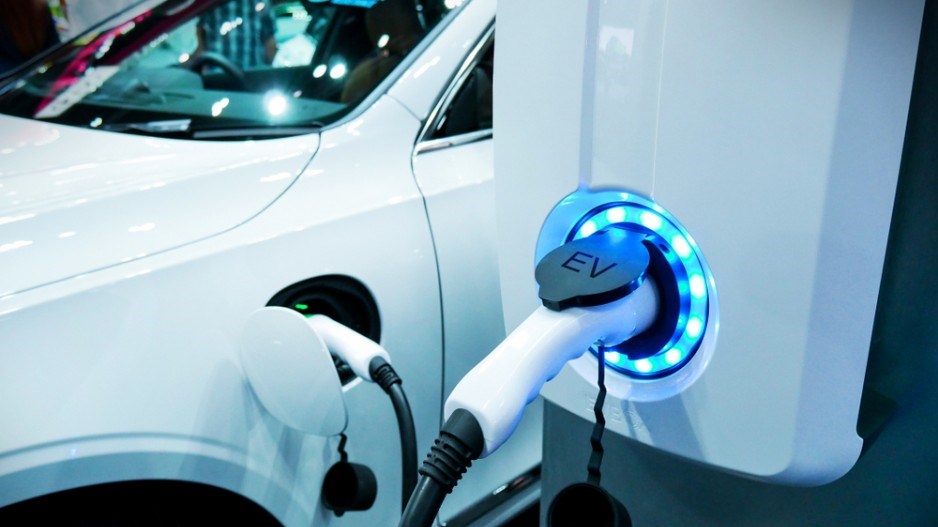As gas prices continue to climb in British Columbia, some drivers in the province are taking advantage of existing programs to acquire a “zero emission” vehicle. By combining provincial and federal rebates, British Columbians can be eligible for up to $16,000 to assist in the purchase an electric car.
This month, Research Co. asked British Columbians about the provincial government’s decision to pass legislation to ensure that, by the year 2040, all light-duty cars and trucks sold in the province will be “zero emission,” as well as their views on becoming owners of an electric vehicle and what – if anything – is stopping them from taking this step.
Across the province, seven in 10 residents (70%) agree with the course of action designed by the provincial government. Support for the new regulations is highest among women (74%), residents aged 18 to 34 (also 74%) and Metro Vancouverites (also 74%).
British Columbians who voted for the BC Green Party in the 2017 provincial election are overwhelmingly in favour of the government’s plan (87%), along with 76% of those who supported the BC NDP and 60% of those who cast a ballot for the BC Liberals (60%).
The results are a bit more contentious when residents are asked to look into the future. Practically half of British Columbians (49%) say the goal that has been established by the provincial government is “definitely” or “probably” achievable. This leaves 42% of residents who do not foresee all light-duty cars and trucks sold in the province being “zero emission” by 2040.
Skepticism towards the feasibility of the government’s pledge is highest among men (46%), residents aged 55 and over (49%) and those who live in the Southern Interior (61%).
A theme develops quickly when looking at these numbers. The core constituencies of the governing BC NDP (women, young voters, Metro Vancouverites) are more likely to endorse the proposal and to think it will come to fruition. Conversely, groups that have traditionally supported the BC Liberals in this century (men, older voters, residents of the Southern Interior) are not particularly fond of the idea or its viability.
Setting aside the political divide, the views of drivers suggest that change may be in the air. More than half of British Columbians who rely on their own vehicle for transportation (51%) say the next car they acquire for themselves or their household is “very likely” or “moderately likely” to be electric.
In this future purchase consideration question, men who drive are more likely to be ready for a switch than their female counterparts (53% to 48%). In addition, Those in the 18-to-34 age group are significantly more likely to think of their next vehicle as a plug-in (59%) than those 35 to 54 (52%) or 55 and over (43%).
Metro Vancouver, which has tackled endless discussions about fuel taxes, leads all regions with 55% of drivers saying they would eventually trade in their current car for an electric one.
In other areas of the province, the situation is more complex. Only 40% of drivers in the Southern Interior are “likely” to purchase an electric car next. The proportion in Northern B.C. is 37%, with no respondents choosing the “very likely” option.
When drivers were asked the main preoccupation that would make them less likely to switch to electric, 24% mention price, 24% are fearful of becoming stranded if they cannot find a charging station and 23% say they do not have enough places to charge the vehicle in the areas where they usually drive.
The perception that electric vehicles are too expensive compared to non-electric ones does not go through any substantial fluctuations across the province. But outside of Lower Mainland, the issue that seems to stop drivers from going electric is infrastructure.
While only 23% of drivers in British Columbia say their main hindrance in acquiring an electric vehicle is not having enough charging spots, the proportion jumps to 35% in the Southern Interior and 45% in the North.
Most British Columbians back making all light-duty cars and trucks sold in British Columbia “zero emission” by 2040. However, to ensure this initiative is fully embraced, it will be imperative to inform the public about existing and future infrastructure related to electric vehicles.
Some drivers say there are not enough charging stations in their neighourhoods. Ensuring that every driver gets a chance to charge near home, work or leisure spots could go a long way in turning some of the skeptical drivers into electric vehicle owners.
Mario Canseco is president of Research Co.
Results are based on an online study conducted from May 20 to May 22, 2019, among 800 adults in British Columbia. The data has been statistically weighted according to Canadian census figures for age, gender and region in British Columbia. The margin of error – which measures sample variability – is plus or minus 3.5 percentage points, 19 times out of 20.




